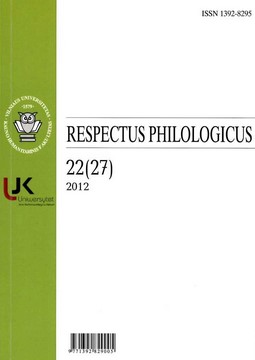MODALITY IN ENGLISH AND RUSSIAN LEGISLATIVE DISCOURSE: A COMPARATIVE STUDY
MODALITY IN ENGLISH AND RUSSIAN LEGISLATIVE DISCOURSE: A COMPARATIVE STUDY
Author(s): Vladimir OzyumenkoSubject(s): Comparative Linguistics, Sociolinguistics, Eastern Slavic Languages, Translation Studies
Published by: Vilniaus Universiteto Leidykla
Keywords: modality; English language; Russian language; legislative discourse; social organization; cultural values;
Summary/Abstract: This paper deals with the verbalization and functioning of modality in English and Russian legislative discourse. By comparing the means of modality in English and Russian legislative texts, both in their qualitative and quantitative aspects, it makes an attempt to explain the revealed differences. The data were collected through a comparative study of the English and Russian versions of the UN Charter and the Consolidated Version of the Treaty on European Union. The quantitative results confirm that the English language, as compared to Russian, has a more sophisticated set of modals which are used more regularly. The qualitative findings show some differences in the choices of linguistic forms and communicative strategies. Sociolinguistic and cognitive analyses were then conducted, suggesting that these differences are rooted in culture; that is, in social organization, cultural values, the concept of self, and the relations between authority and individuals. The results advocate the idea that grammar is an ideological instrument for the categorization and classification of things that happen in the world (Thornborrow 2002). Alongside other aspects of language, it provides a lot of sociocultural information. The results are relevant to the study of translation and intercultural communication, as well as to ESL teaching.
Journal: Respectus Philologicus
- Issue Year: 2012
- Issue No: 22(27)
- Page Range: 37-44
- Page Count: 8
- Language: English

